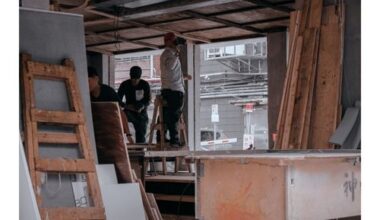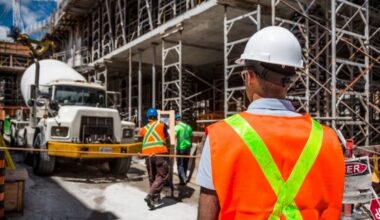A residential structural engineer is a licensed specialist that can help you with your next home improvement project or property purchase. Many homeowners are unaware of when they may require the services of a structural engineer and how to locate one. Let’s look at why structural engineers are so important in the home-buying, design, and construction processes. We’ll also look at how to hire a residential structural engineer and how much it will cost.
Who is a Residential Structural Engineer?
A licensed expert who is trained to engineer the design configurations that define the shape and form of man-made structures is known as a residential structural engineer. They are in charge of engineering design as well as structural analysis. Their role is to evaluate the forces acting on a building and determine whether or not the structure is designed to withstand such forces. Structural engineers can calculate and comprehend a structure’s stability, strength, and rigidity. Overall, structural engineers are highly versed in subjects pertaining to building structural integrity.
Homeowners may wonder why they would not simply hire a contractor, architect, or inspector, but the explanation is easy. Engineers can examine the severity of a problem, what is causing the issue, and what the best suitable solution is, unlike contractors and inspectors who are good at detecting early warning indications of prospective difficulties. Architects can help property owners design a practical and visually beautiful home or space, but a residential structural engineer will ensure your building supports and resists the loads it is subjected to, ensuring the overall safety of your home.
What Are The Duties Of A Resident Engineer?
A resident engineer is a type of construction worker. It frequently refers to an engineer who works on-site for the client or the design engineer. The duties include supervising and instructing the contractor, as well as reporting to the designer and/or client on a regular basis.
When Do You Require the Services of a Residential Structural Engineer?
It can be difficult to know when to hire a residential structural engineer. You may not require their services very often, but when you do, their experience may be critical in assisting you in making key decisions regarding a sale, acquisition, or a building project/issue.
Many consumers are unaware they require the services of a residential structural engineer until a third party, such as a home inspection or contractor, suggests them.
In these situations, a residential structural engineer is unlikely to come to mind! Here are some examples of when to hire.
#1. Remodel/Renovation
The size, complexity, and nature of the project will determine if you require a residential structural engineer for your remodel/renovation.
Minor Repairs
If you are planning a little remodeling, such as a bathroom remodel, you will most likely not require the services of an engineer.
Keep in mind, however, that whenever new loads are added to a building or a wall are removed, an engineer should ensure that the home’s skeleton can support the weight.
For example, if you decide to add a whirlpool tub to your bathroom, a residential structural engineer should review the current house plans, if they are available, to ensure that reinforcements are not required to support the extra load.
If reinforcements are needed, the engineer can create a scope of work for your contractor to follow.
Major Renovating
Major renovations/remodels, such as adding a room, deck, sunroom, or detached space, should always engage a structural engineer before any drawings are made!
If you speak with an engineer right away, they will be able to tell you if you need to inspect the soils around your home, water management, foundation strength, and other factors that a designer or architect may overlook.
#2. Adding a Room
There are various variables to consider if you decide to add on to your home:
What is the major goal? How will the available space be utilized? Are you expanding or contracting? What is your financial situation?
It is best to engage with a designer or architect early in the project’s planning stages (after you have verified with a residential structural engineer that the building site is acceptable).
Based on your answers to the questions above, the designer/architect can provide recommendations and build designs based on your concept.
#3. Expanding your Home
Building out or expanding your home is a popular trend among many people. It comprises building a room or rooms on the ground level to make more space in your home.
This alternative will take up some of your lawn space and will necessitate the pouring of a foundation. The preliminary blueprints can be created by your architect.
Then, you’ll need to hire a residential structural engineer to check over the drawings, design a foundation plan, and include specifics on load-carrying structural systems like live load, dead load, and environmental loads like wind, thermal, and seismic.
#4. Prefabricated Structures

Prefabricated structures are often “ready to go,” and would not necessitate the services of a structural engineer to do structural analysis or load calculations unless the homeowner intended to add materials other than those specified in the prefabricated structure plan.
These extra alternatives may include granite countertops, hardwoods, or anything like an aquarium that was not originally considered. A foundation plan, on the other hand, would require the services of a residential structural engineer.
#5. Adding a Deck
If you build a deck without a permit, you can get a surprise visit from local building officials! In other situations, the city’s construction department has actually ordered homeowners to demolish newly built decks because they were erected without a permit and/or in violation of building rules.
Building codes are intended to keep your family safe as well as your investment safe!
#6. Sunroom Addition
Including a sunroom in your house is a thrilling addition! There are numerous aspects to consider, including:
- How big will the room be?
- How many windows are there?
- Is it going to be heated?
- Is there going to be power?
All of these inquiries are about calculations that a residential structural engineer will need to know in order to assess the amount of load in the area. An architect or designer can assist you in answering these issues and developing plans.
#7. New Buildings
If you want to create your dream house, you’ll need a fantastic team of pros to help you get there.
An architect, a residential structural engineer, a contractor, an electrician, a plumber, an HVAC expert, and a house inspector are all required.
Before you begin employing professionals, it is a good idea to have a rough concept of your aims, beginning with the following question:
Do you desire a new home plan or do you want to save money by buying a pre-existing “catalog” architectural plan?
Purchasing a “ready-made” conventional house plan from a catalog simplifies the procedure and can also be less expensive!
#8. Real Estate Transactions
Before purchasing a home, it is always a good idea to have a home inspection completed.
A house buyer would typically hire a general home inspection agency (ideally one that is a member of ASHI, the American Society of Home Inspectors) to assist them in evaluating general home maintenance issues and identifying any broad structural “red flag” problem areas.
These can include everything from the electrical to the plumbing, and everything from the foundation to the roof.
This inspection provides you with information on required repairs, which can provide you with bargaining leverage.
The general inspection can also reveal serious structural issues such as foundation fractures, uneven floors, drooping headers, and so on.
#9. Installation of Solar Panels
The “green” movement and energy independence are thriving! Are you taking the initiative to switch to solar energy that is renewable?
Solar energy is becoming increasingly popular as a result of government tax advantages and environmental benefits. Solar panels can be installed by a number of one-stop shops.
These providers should have a structural engineer on staff to ensure that the added weight of the panels does not endanger your home. If not, consult a residential structural engineer before beginning your project.
#10. Cracks/Slopes/Movement
Have you observed any major structural movement in your home? Are the floors slanted? Are your doors squeaking? So, are you noticing cracks in your walls or foundation?
These kinds of issues are widespread and are frequently caused by settlement within the home. You can, however, never be too certain. Sometimes homes are built poorly, resulting in continuous troubles like the ones outlined above.
Other times, you may have been unaware of a structural breakdown, such as a broken truss. Hire a residential structural engineer if you have any queries or worries.
#11. Weight-Bearing Objects Installation
Do you want to put in a big fish tank, a piano, a hot tub on the deck, a big jacuzzi tub, or a pool table?
All of these items can add a substantial amount of weight to the structural parts of your home, perhaps exceeding the allowable weight per square foot.
This could be extremely damaging to your house and potentially dangerous. Set up an inspection with a structural engineering firm to determine what type of structural system your home has and whether it can withstand the added weight.
#12. Fire Remediation
If your home recently survived a major fire, structural components are likely to have been destroyed. This may be a complete nightmare.
Before deciding how to proceed, have a residential structural engineer on-site to assess the extent of the damage and how to remedy the issue.
#13. Property Damage
When you think of property damage, you might not think of a residential structural engineer. Strange accidents, such as autos colliding with buildings, fences, or signs, might occur and necessitate the attention of a structural engineer.
Heavy objects on wheels can cause more structural damage than you might believe! If you sustain property damage as a result of a moving car or other occurrences, call a structural engineer to analyze the situation.
If your property was damaged by natural disasters such as storms or tornadoes, a structural engineer could be your best friend.
Instead of allowing your insurance company to send their own engineers, hire your own engineer to represent and protect you.
#14. Construction Error
If you live in a newly built home and notice considerable movement, wall cracks, uneven flooring, door jams, water penetration, foundation movement, or other unusual difficulties, you may have a construction defect case.
You might want to think about hiring a structural engineer to come out and make a first visual inspection.
An engineer will be able to offer you more information regarding the source of your concerns, as well as whether current problems are the result of poor craftsmanship. The second step is to consult with a lawyer, who many structural engineers can recommend.
The lawyer can consult with the engineers and the homeowner to assess whether or not the issue is worth pursuing.
How to Choose a Residential Structural Engineer for Your Project
Structural engineers are not all created equal. Just because someone has an outstanding collection of credentials does not indicate they have the experience to manage a successful project.
When it comes to choosing a residential structural engineer, a three-step approach is required.
Each evaluation should include a qualification statement, a specific scope of their job, and a proposal presentation of your project.
But, before you make your decision, here are seven critical factors to consider while assessing a residential structural engineer that you want to hire.
#1. Always have a look at their credentials.
Experience and practical knowledge are equally vital. However, don’t make the mistake of ignoring an official qualification.
Make certain that a residential structural engineer has received some type of recognized training to guarantee that all of your bases are covered. No matter what form of the project it is, you must hire someone who is completely dependable in their expertise of a structure.
A well-trained, competent engineer will not only be able to identify site concerns and areas of concern but will also be able to address these problems!
Look for a master’s degree in structural or civil engineering. Alternatively, a degree in a related field, such as construction or quantity surveying, may be required.
#2. Look for a clear scope of work.
Qualifications are vital, but nothing beats years of hands-on, excellent experience.
When selecting an engineer, constantly consider their scope of work as well as previous projects they’ve worked on.
The term “scope of work” also refers to a working document or proposal that includes cost estimates and a timetable for your project. This document, similar to a project proposal, should explicitly transform client concepts into functioning designs.
#3. Make Technical Competency a Priority
Technical proficiency is essential to the effective and timely completion of your project. This level of expertise is attained by education, hands-on experience, and a library of skills accumulated over many years in the industry.
A structural engineer possesses a broad toolbox of skills and information gained through their studies and years of experience in the field.
Inquiring about difficult scenarios they’ve experienced in their career is a wonderful method to vet an engineer and obtain a better understanding of their competency. Their responses to how they dealt with these problems should reveal a lot about their competence!
#4. Prioritize Project-Specific Experience
A residential structural engineer may have been in operation for decades, but if they only have one scope of work under their belt, this may limit your options. In reality, general structural engineering experience is not usually sufficient.
This is why it’s critical to be thorough in your search and focus on project-specific experience in an engineer.
#5. Look for Extensive Construction Experience
Yes, a structural engineer should be familiar with the construction process. A deep understanding of constructability, on the other hand, makes all the difference.
But what does constructability have to do with it? This means that a structural engineer will ensure that a structure is reasonably simple to construct while yet being adequately constructed.
#6. Ensure Knowledge of Building Codes
What is the use of a structure if it does not meet international building codes? In a nutshell, it’s terrible.
Every jurisdiction has a set of building codes that establish minimal levels of safety in construction. A well-versed structural engineer should always be familiar with these codes.
Structural engineers are legally required to follow certain building codes in their design and construction processes. A lack of awareness of building codes should raise an immediate red flag!
#7. Seek Out Creative Thinking
A structural engineer can be relatively effective if they have the technical experience and the correct degree. But it’s vital to realize that no two structural engineering projects are alike. This is when creative, outside-the-box thinking comes in handy.
In order to determine inventive thinking, ask for instances of complex projects on which an engineer has previously worked. Examine the creative ideas they devised and base your decision on them.
How Much Does it Cost to Hire a Residential Structural Engineer by the Hour?
The average hourly cost for a residential structural engineer is between $100 and $200. The overall number of hours depends on the size of the inspection, site visits, and additional services such as engineering plan drawing.
How Much Does it Cost to Hire a Residential Structural Engineer in Your Area?
The national average cost for a residential structural engineer is $500, however, your location can make a significant difference. Your region is important in a number of ways:
- Building laws and regulations (permits, fees, and inspection requirements)
- The foundation and style of the house
- The cost of living
- Common structural problems in your area
It’s perhaps not surprising that the cost of a residential structural engineer in a high-priced city like San Francisco may be more than one in rural Missouri. Older homes in Maine with basement foundations that are more prone to structural damage, on the other hand, may cost more than a standard repair for a slab-on-ground foundation in Florida.
Residential Structural Engineer FAQ’s
How does a structural engineer check a house?
A licensed structural engineer will assess a home’s foundation, infrastructure, external walls, insulation, and building envelope during the inspection. They may inspect the load-bearing walls, joists, beams, roofing, and foundations for structural integrity.
What is the average cost of a structural engineer?
Hiring a residential structural engineer will cost an average of $513, with a usual range of $343 to $725. On average, structural engineering blueprints cost in price from $800 to $3,000. They charge between $100 and $200 each hour for their services.
What is the difference between architect and structural engineer?
While an architect is typically concerned with the aesthetic, color, and materials of the structure, as well as other factors that may impact the overall functionality and productivity of the occupants, a structural engineer is more concerned with factors that may make the built system less safe for the occupants.
How much does a structural engineer survey cost in UK?
In the UK, the typical structural engineer survey and report fees are from £350 to 650 + VAT. This will vary depending on the size, age, and condition of the property. A structural inspection focuses on a single problem, whereas a general report covers the entire property.
What does a structural engineer do NZ?
Structural engineers in NZ analyze, design, and manage the construction of a wide variety of load-bearing structures, including dwellings, commercial buildings, sports stadiums, and bridges.






